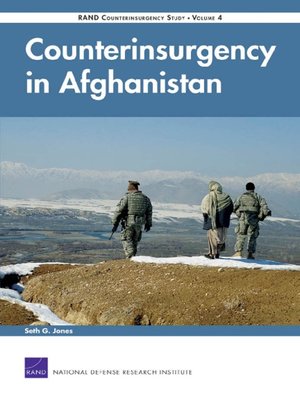
Sign up to save your library
With an OverDrive account, you can save your favorite libraries for at-a-glance information about availability. Find out more about OverDrive accounts.
Find this title in Libby, the library reading app by OverDrive.



Search for a digital library with this title
Title found at these libraries:
| Library Name | Distance |
|---|---|
| Loading... |
This study explores the nature of the insurgency in Afghanistan, the key challenges and successes of the U.S.-led counterinsurgency campaign, and the capabilities necessary to wage effective counterinsurgency operations. By examining the key lessons from all insurgencies since World War II, it finds that most policymakers repeatedly underestimate the importance of indigenous actors to counterinsurgency efforts. The U.S. should focus its resources on helping improve the capacity of the indigenous government and indigenous security forces to wage counterinsurgency. It has not always done this well. The U.S. military-along with U.S. civilian agencies and other coalition partners-is more likely to be successful in counterinsurgency warfare the more capable and legitimate the indigenous security forces (especially the police), the better the governance capacity of the local state, and the less external support that insurgents receive.







